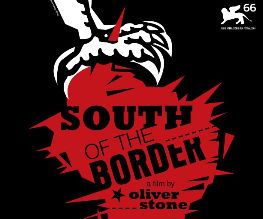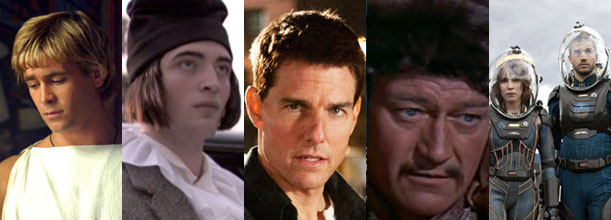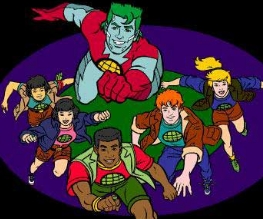South of the Border

An Oliver Stone documentary about South American presidents that features Michael Moore footage in a positive light in the first few minutes. Yes, chances are you may have already made up your minds about South of the Border before even considering buying a ticket. Ferociously impartial and occasionally obnoxious, Oliver Stone would hardly be anyone’s first choice of documentarian. And yet in spite of himself, he has produced an important documentary that while not being particularly far reaching, sheds worthy light on America’s warped media coverage of Latin American leaders, painting a picture of a continent that ardently wants to assert the identities of its peoples onto the world stage.
[FLOWPLAYER=http://uk.image-1.filmtrailer.com/37746.jpg|http://uk.clip-1.filmtrailer.com/4902_13437_a_2.flv,275,180]
Hugo the Hero?
As one would expect, the documentary works best when Stone is off the screen – which is thankfully more than you may expect. He does on the whole allow the leaders to speak for themselves and they speak with a passion and integrity far removed from Western politics. The principle subject of the film is Venezuelan president Hugo Chavez, a figure much demonized as a dictator by the American media and he cuts an interesting figure as Stone deconstructs this image, taking us through the York Notes of his political career. However, as you would expect in this unabashedly biased rendering of Chavez, Stone doesn’t go nearly far enough in his questioning of him, preferring rather to present Chavez as a white knight than as a fallible political leader who has been very divisive in his time. He covers some of the conflicts that have arisen during Chavez’s presidency, but he is quick to excuse them, without even asking Chavez about them.
Oliver the dictator?
Of course, Stone can’t help himself at some points in the film. His insulting question to Argentinean president Cristina Kirchner about her shoe collection and his reaction to her smart reply are pathetic, and his attempts at playing football with Bolivian president Evo Morales make for awkward viewing. And yet the viewer’s impression of the films subjects remains untainted by Stone’s arrogance. Though Stone makes for a boorish ambassador for Latin America, he is also an impassioned one, presenting his subjects in a friendly and accessible light which at the very least will pique the viewer’s curiosity about South American politics.
Go South of the Border
Aside from the big, brash light he shines on the bias of the Western media towards the South American leaders, Stone also raises questions regarding the International Monetary Fund and the U.S.A’s foreign policy. While he does none of this with much precision or impartiality, it’s worth remembering that the Western media has been far from impartial either. We can wish for a more detailed portrait of Chavez and that Stone was more subtle, we cannot deny that South American leaders deserve the chance to have their say – which Stone manages to give them in an entertaining and interesting way.





Recent Comments